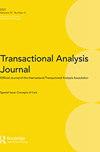Time Changing: A Resource in Psychotherapy
引用次数: 0
Abstract
AbstractOur experience of time is important for the quality of our life. Some psychological disorders, in their various forms, can be peculiar in that time is experienced as repetition. In contrast, in a healthy life, the future is viewed as something new and different from the present and the past. In successful psychotherapy, the patient changes their experience of time, which can be seen as an important sign of the therapy’s effectiveness. In this article, the author reflects on the value of repetition, which is generally regressive, although it may also be a repeated fight against an obstacle in an effort to overcome it. Reference is made to Eric Berne and to Robert and Mary Goulding and also to the author’s clinical work in order to highlight therapeutic interventions that may enable a change in how time is experienced in psychotherapy.Keywords: Repetitionchange in psychotherapyemotion theoryphenomenologypsychoanalysisEric BerneSigmund Freudtimescripttransactional analysis Disclosure statementThe author declared no potential conflicts of interest with respect to the research, authorship, and/or publication of this article.Additional informationFundingThe author received no financial support for the research, authorship, and/or publication of this article.Notes on contributorsFabio RicardiFabio Ricardi is a Teaching and Supervising Transactional Analyst (psychotherapy) in Milan, Italy, who works at Centro Berne in their Scuola di Specializzazione in Psicoterapia (psychotherapy specialization school) and as a psychotherapist with individuals, groups, and couples. He published Analisi Transazionale. Il sé e l'altro [Transactional Analysis: The Self and the Other] (Xenia, 1997) and L’esperienza del tempo [The Experience of Time] (Mimesis, 2018). He has also written several articles for Neopsiche Rivista di Analisi Transazionale e Scienze Umane, which is published by the Associazione Italiana di Analisi Transazionale (AIAT). Fabio can be reached at via F. Cilea 106, 20151, Milan, Italy; email: ricardifabio@gmail.com.时间改变:心理治疗的一种资源
时间体验对我们的生活质量很重要。一些各种形式的心理障碍,在经历时间的重复时可能是特殊的。相反,在健康的生活中,未来被视为一种新的、不同于现在和过去的东西。在成功的心理治疗中,患者改变了他们对时间的体验,这可以被视为治疗有效性的一个重要标志。在这篇文章中,作者反思了重复的价值,它通常是倒退的,尽管它也可能是在努力克服障碍的过程中反复与障碍作斗争。参考了Eric Berne, Robert和Mary Goulding以及作者的临床工作,以强调治疗干预可能会改变心理治疗中体验时间的方式。关键词:重复心理治疗变化情绪理论现象学精神分析埃里克·伯恩西格蒙德·弗洛伊德时代手稿交易分析披露声明作者声明在本文的研究、作者身份和/或发表方面没有潜在的利益冲突。作者在研究、撰写和/或发表这篇文章时没有得到任何经济支持。fabio Ricardi是意大利米兰的一名教学和监督交易分析师(心理治疗),他在Centro Berne的Scuola di Specializzazione的Psicoterapia(心理治疗专业学校)工作,是一名心理治疗师,为个人、团体和夫妻提供服务。他出版了《透视分析》。《交易分析:自我与他者》(Xenia出版社,1997)和《时间的体验》(Mimesis出版社,2018)。他还为意大利分析协会(AIAT)出版的《人类科学与分析新展望》(Neopsiche Rivista di Analisi Transazionale)撰写了几篇文章。可通过以下地址联系法比奥:意大利米兰,F. Cilea 106, 20151;电子邮件:ricardifabio@gmail.com。
本文章由计算机程序翻译,如有差异,请以英文原文为准。
求助全文
约1分钟内获得全文
求助全文
来源期刊

Transactional Analysis Journal
Decision Sciences-Decision Sciences (miscellaneous)
自引率
0.00%
发文量
27
 求助内容:
求助内容: 应助结果提醒方式:
应助结果提醒方式:


